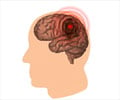Music could one day be used as a therapeutic tool for blood pressure control and heart patient rehabilitation, according to a new study.
Previous studies have shown that music with faster tempos resulted in increased breathing, heart rate and blood pressure.And when the music was paused, breathing, heart rate and blood pressure decreased, sometimes below the beginning rate. Slower music caused declines in heart rates.
In music, a crescendo is a gradual volume increase, and a decrescendo is a gradual volume decrease.
The new study showed that swelling crescendos appear to induce moderate arousal while decrescendos induce relaxation.
"Music induces a continuous, dynamic - and to some extent predictable - change in the cardiovascular system," said Dr Luciano Bernardi, lead researcher of the study and professor of Internal Medicine at Pavia University in Pavia, Italy.
"It is not only the emotion that creates the cardiovascular changes, but this study suggests that also the opposite might be possible, that cardiovascular changes may be the substrate for emotions, likely in a bi-directional way," Bernardi added.
Advertisement
Five random tracks of classical music were played - including selections from Beethoven's Ninth Symphony; an aria from Puccini's Turandot; a Bach cantata (BMW 169); Va Pensiero from Nabucco; Libiam Nei Lieti Calici from La Traviata - as well as two minutes of silence.
Advertisement
During the silent pause, changes decreased, with blood vessels under the skin dilating and marked reductions in heart rate and blood pressure.
It also reduced heart rate and other variables, indicating relaxation. Moreover, music phrases around 10 seconds long, like those used in "Va Pensiero" and "Libiam Nei Lieti Calici," synchronized inherent cardiovascular rhythm.
"The profile of music (crescendo or decrescendo) is continuously tracked by the cardiovascular and respiratory systems," Bernardi said.
"This is particularly evident when music is rich in emphasis, like in operatic music.
"These findings increase our understanding of how music could be used in rehabilitative medicine," Bernardi added.
The study is published in Circulation: Journal of the American Heart Association.
Source-ANI
SRM














